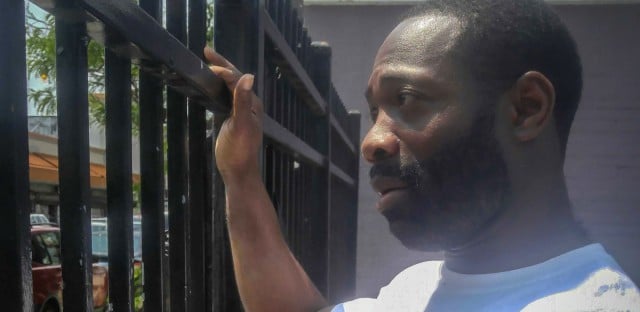It was a hot and lively Friday afternoon at the intersection of Madison Street and Pulaski Road on Chicago’s West Side.
Alonzo Waheed offered up free slices of pizza as an organizing tactic to engage people walking by. He pointed out that the underground economy thrives here where jobs are scarce. To earn money, people sell loose cigarettes, DVDs — and weed.
“With the individuals out here selling socks, braiding hair or just doing whatever it is they need to hustle. If someone comes and takes that job away from them, how do they survive now? So what we’re really talking about is a labor dispute,” Waheed told two women through a gate. What happens to drug dealers, he asked. They leaned in to listen.
A labor dispute is Waheed’s take on how these corners will be affected with the legalization of marijuana in Illinois. He is a lead organizer with Equity and Transformation, or EAT, which was part of a coalition pushing for fairness in the marijuana bill.
The bill Illinois lawmakers passed — and Gov. JB Pritzker signed this week — to legalize adult recreational marijuana is unprecedented in the U.S. The law takes effect in January. It will allow adults 21 years and older to buy the drug at dispensaries that must undergo a rigorous state licensing process. The legislation addresses racial equity and seeks to reverse some harm done to black and brown communities because of the war on drugs.
The disproportionate toll of the war on cannabis is still evident. The 2017 National Survey on Drug Use and Health showed that white respondents more often reported cannabis use than African American and Latino respondents. However, in Chicago, between 2014 and 2017, African Americans were 21 times more likely than whites to be arrested for cannabis-related offenses, according to a WBEZ analysis. Latinos were nearly five times more likely than whites to be arrested for such crimes. The disparities were similar for individuals from Cook County imprisoned in Illinois for cannabis-related offenses between fiscal years 2014 and 2017.
Credit: www.wbez.org

